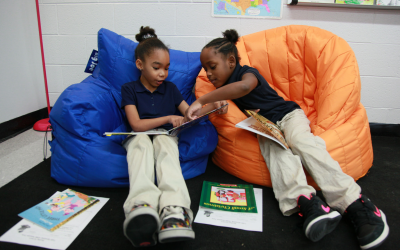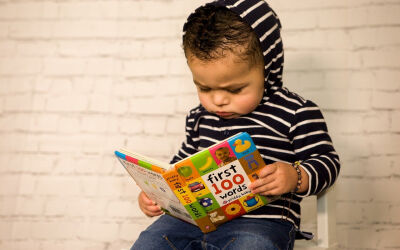
Reading is a fundamental skill that every child needs to acquire in order to succeed in life. It is not only essential for developing language and literacy skills but also plays a crucial role in developing social and emotional intelligence. In fact, numerous studies have shown a strong correlation between reading and empathy in kids. This article will explore the connection between reading and empathy in children and how books can help them develop their emotional intelligence.
We’ll discuss the following topics:
- How Reading Can Help Kids Develop Empathy
- The Science Behind the Connection Between Reading and Empathy in Kids
- The Role of Storytelling in Developing Emotional Intelligence
- How Parents Can Foster Empathy Through Reading with Their Kids
- Tips for Choosing Books That Foster Empathy in Children
How Reading Can Help Kids Develop Empathy:
Reading books can help children develop empathy by exposing them to different perspectives, cultures, and experiences. By reading about characters who are different from themselves, children can learn to understand and relate to others who are different from them. Books also provide a safe space for children to explore their emotions and learn how to express themselves in healthy ways. Additionally, reading books can help children develop language and communication skills, which are essential for building positive relationships with others.
The Science Behind the Connection Between Reading and Empathy in Kids:
Several studies have shown that reading can increase empathy and emotional intelligence in children. For example, a study published in the journal Science found that reading literary fiction can improve a person’s ability to understand and relate to others. Another study published in the journal Child Development found that children who read books with moral lessons were more likely to share and cooperate with others. These findings suggest that reading can have a positive impact on children’s social and emotional development.
The Role of Storytelling in Developing Emotional Intelligence:
Storytelling has been used for centuries to convey important messages and teach children about the world around them. By sharing stories with children, parents and caregivers can help them develop their emotional intelligence and empathy. Stories can help children understand complex emotions, such as sadness, fear, and anger, and teach them how to respond to these emotions in healthy ways. Additionally, stories can help children learn about different cultures, beliefs, and experiences, which can broaden their understanding of the world and the people in it.

How Parents Can Foster Empathy Through Reading with Their Kids:
Parents can foster empathy in their children by reading with them and discussing the stories they read together. This can help children develop a deeper understanding of the characters and the emotions they experience. Parents can also encourage their children to ask questions and share their own experiences, which can help them develop their communication and social skills. Additionally, parents can choose books that focus on important social and emotional themes, such as kindness, empathy, and friendship.
Tips for Choosing Books That Foster Empathy in Children:
When choosing books for children, it’s important to select stories that promote empathy and emotional intelligence. Here are some tips for choosing books that foster empathy in children:
- Look for stories that feature diverse characters from different backgrounds and cultures.
- Choose books that explore complex emotions and themes, such as loss, fear, and friendship.
- Select books that have positive messages and moral lessons that promote empathy and kindness.
- Read books with your child and discuss the emotions and experiences of the characters together.
- Look for books that promote empathy and social awareness, such as books that teach children about community service and helping others.
Conclusion
Reading is a powerful tool for developing empathy and emotional intelligence in children. By exposing children to diverse perspectives and experiences, books can help them understand and relate to others who are different from themselves. Parents and caregivers can foster empathy in their children by reading with them, discussing the stories, and selecting books that promote important social and emotional themes. As children grow and develop, reading can help them become more compassionate, kind, and understanding members of society. So, encourage your child to read and explore the world of books to develop their emotional intelligence and empathy. Also, you can complete our 2-minute test for parents to find the next perfect book for your kid.
FAQs
At what age should parents start reading to their children to promote empathy?
It’s never too early to start reading to your child. Even babies can benefit from being read to, as it can help them develop language and communication skills. As children grow older, reading together can help them develop empathy and emotional intelligence.
Can digital books have the same effect on empathy as physical books?
Some studies have suggested that digital books may not have the same effect on empathy as physical books, as they can be less immersive and interactive. However, there are many high-quality digital books available that can still promote empathy and emotional intelligence in children.
How can teachers use books to promote empathy in the classroom?
Teachers can use books as a tool to teach empathy and emotional intelligence in the classroom. By selecting books that feature diverse characters and explore complex emotions and themes, teachers can help students develop a deeper understanding of themselves and others. Additionally, teachers can encourage classroom discussions and activities that promote empathy and social awareness.






